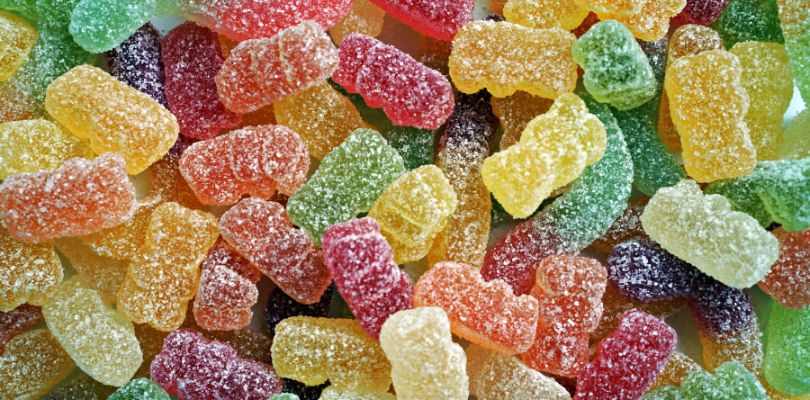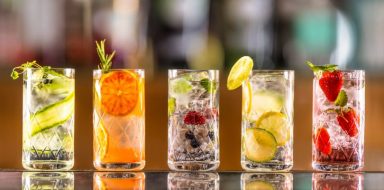Common Foods to Avoid with Low Energy
Experiencing low energy can affect daily productivity, focus and overall well-being. While there are many potential causes of low energy—such as stress, lack of sleep or underlying health conditions—your diet plays a significant role. Consuming the wrong types of foods can lead to fatigue, blood sugar crashes and even worsen feelings of tiredness. You can also talk to your doctor about treatment options like Dojolvi, a specially formulated source of calories and fatty acids that helps address low energy levels. If you're struggling with low energy, here are the worst foods to eat and why you should avoid them.
9 Foods to Avoid
1. Sugary Snacks and Candy
Sugary snacks, such as candy bars, pastries and cookies, can provide a quick burst of energy due to their high sugar content, but that energy boost is short-lived. These foods cause a rapid spike in blood sugar, followed by a sudden crash that leaves you feeling more tired than before. Regular consumption of sugary snacks can also lead to insulin resistance and weight gain, both of which can contribute to chronic fatigue.
2. Refined Carbohydrates
Refined carbohydrates like white bread, pasta and baked goods made with white flour can have a similar effect on your energy levels as sugary snacks. Because they lack fiber and essential nutrients, they are quickly digested and absorbed, causing a spike in blood glucose followed by a crash. This quick digestion leaves you feeling drained and lacking energy soon after eating.
3. Fried Foods
Foods such as French fries, fried chicken and onion rings are often high in unhealthy fats and take longer to digest. This can leave you feeling sluggish and tired. Fried foods are also heavy on the stomach and can cause digestive discomfort, further reducing your energy levels. Moreover, the excessive consumption of unhealthy fats can contribute to weight gain and chronic fatigue over time.
Did you know there are certain drinks to avoid with stomach cancer? Keep reading to learn what to avoid and why.
4. Processed Meats
Processed meats like bacon, sausages, hot dogs and deli meats are loaded with preservatives, unhealthy fats and sodium. They are often low in essential nutrients and high in calories, which can lead to feelings of lethargy. These meats also take longer to digest and may contribute to bloating and sluggishness.
5. Energy Drinks
Energy drinks may seem like an obvious solution for low energy, but they often do more harm than good. These drinks contain high amounts of caffeine and sugar, leading to a quick burst of energy followed by an inevitable crash. Regular consumption of energy drinks can also cause jitteriness, dehydration and disrupted sleep patterns, all of which can worsen fatigue in the long run.
6. Alcohol
Alcohol is a depressant that slows down the central nervous system, leading to fatigue and drowsiness. Drinking alcohol, especially in excess, can disrupt sleep quality and leave you feeling tired the next day. Even small amounts of alcohol can interfere with REM sleep, which is the restorative phase of sleep that helps you feel refreshed and energized.
7. Fast Food
Fast food meals are often high in calories, saturated fats, and sodium, all of which can leave you feeling sluggish after eating. Fast food is also low in essential nutrients like vitamins, minerals, and fiber, which are necessary for sustained energy. Consuming fast food regularly can contribute to weight gain, further compounding feelings of tiredness and lack of motivation.
8. High-Fat Dairy Products
High-fat dairy products like full-fat cheese, cream, and butter can be difficult to digest, especially in large amounts. These foods may lead to feelings of heaviness and lethargy, particularly when consumed in combination with other fatty or fried foods. The high fat content can also slow down your metabolism, contributing to low energy levels throughout the day.
9. Soda
Soda is high in both sugar and caffeine, which leads to an immediate energy spike followed by a dramatic crash. The high sugar content in soda causes a rapid increase in blood glucose levels, which soon drops, leaving you feeling tired and craving more sugar. The caffeine in soda can also lead to jitteriness, dehydration, and disrupted sleep.
Foods That Provide Energy
While avoiding energy-draining foods is essential, it's equally important to incorporate energy-boosting foods into your diet. These foods help sustain energy levels throughout the day and promote overall well-being.
- Oatmeal: Provides slow-releasing carbohydrates for steady energy.
- Nuts and seeds: Packed with healthy fats, protein, and fiber to sustain energy.
- Fruit: Natural sugars and fiber offer quick and lasting energy.
- Leafy greens: High in vitamins and minerals that support energy production.
- Whole grains: Provides complex carbohydrates for long-lasting energy.
- Eggs: High in protein and essential nutrients for energy and muscle repair.
- Yogurt: Rich in protein and probiotics for digestive health and energy.
- Avocados: Full of healthy fats that provide long-lasting energy.
- Legumes: A good source of plant-based protein and complex carbohydrates.
Treatment Options for Low Energy
If dietary changes and lifestyle adjustments aren’t enough to combat low energy, there are medical treatments available. Dojolvi (triheptanoin) is one such option for individuals suffering from certain metabolic disorders that cause low energy levels. Dojolvi is a specially formulated source of calories and fatty acids that helps provide energy to people with long-chain fatty acid oxidation disorders (LC-FAOD). This medication helps ensure that patients' bodies can produce the energy needed for daily activities and metabolic functions.
Final Notes
Avoiding foods like sugary snacks, alcohol and fast food can prevent energy crashes and fatigue. By focusing on nutrient-dense, energy-boosting foods like whole grains, fruits and leafy greens, you can maintain a more consistent energy level throughout the day. For those with chronic low energy, treatments such as Dojolvi can help improve energy production and overall quality of life. Always consult with a healthcare provider for personalized advice on managing low energy.







